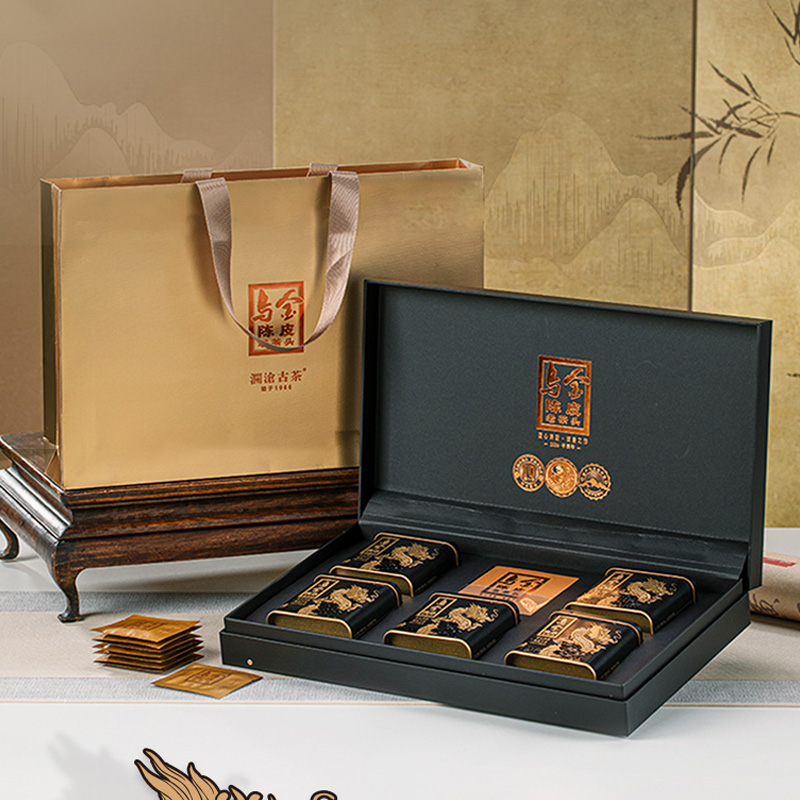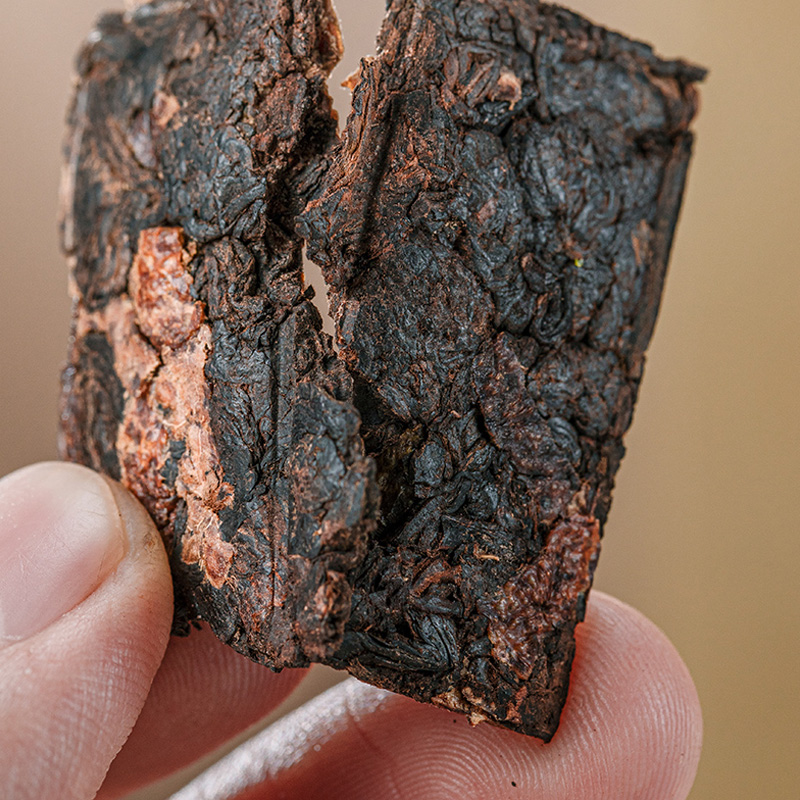2024 Ujin Orange Peel Old Tea Head Ripe Pu 'er Tea 160g (black)
-
Detail
Nutritional Value of Pu-erh Tea
1. Rich in Antioxidants: Contains tea polyphenols (especially catechins) and microbial metabolites from fermentation, which combat free radicals and delay aging .
2. Vitamins: High in vitamins B1, B2, C, and E. Vitamin C aids immunity and collagen synthesis, while B2 supports metabolism and prevents oral diseases .
3. Minerals: Provides potassium, phosphorus, calcium, and magnesium, essential for fluid balance, bone health, and cardiovascular function .
4. Digestive Support: Contains enzymes that break down fats and proteins, improving gut health and reducing bloating .
5. Lipid Regulation: Polysaccharides and theabrownins formed during fermentation help lower cholesterol and triglycerides, aiding weight management .
Brewing Methods for Pu-erh Tea
1. Preparation:Use purified or spring water heated to 95–100°C.
a. Opt for a Yixing clay teapot, porcelain gaiwan, or glass vessel to preserve aroma .
2. Tea-to-Water Ratio:1:30 ratio (e.g., 7g tea for 210ml water). Adjust based on tea type: aged or compressed tea may require more leaves .
3. Rinsing (Awakening the Tea):Pour hot water over the leaves and discard immediately. Repeat once to remove impurities and activate the tea .
4. Steeping:First Infusion: 10–20 seconds.
a. Subsequent Infusions: Increase steeping time by 5–10 seconds each round. Ripe Pu-erh can tolerate longer steeping (30–60 seconds) .
b. For aged raw Pu-erh, use slightly cooler water (90–95°C) to avoid bitterness .
5. Serving:Pour tea into a fairness cup first to ensure even flavor distribution, then serve in small cups. Savor the smooth, earthy notes and lingering sweetness .
Pro Tips:
● Compressed tea (cakes/bricks) should be gently loosened with a tea pick before brewing.
● Avoid overnight tea or prolonged steeping, as it may develop excessive bitterness .
-
Customer ReviewsNo comments




